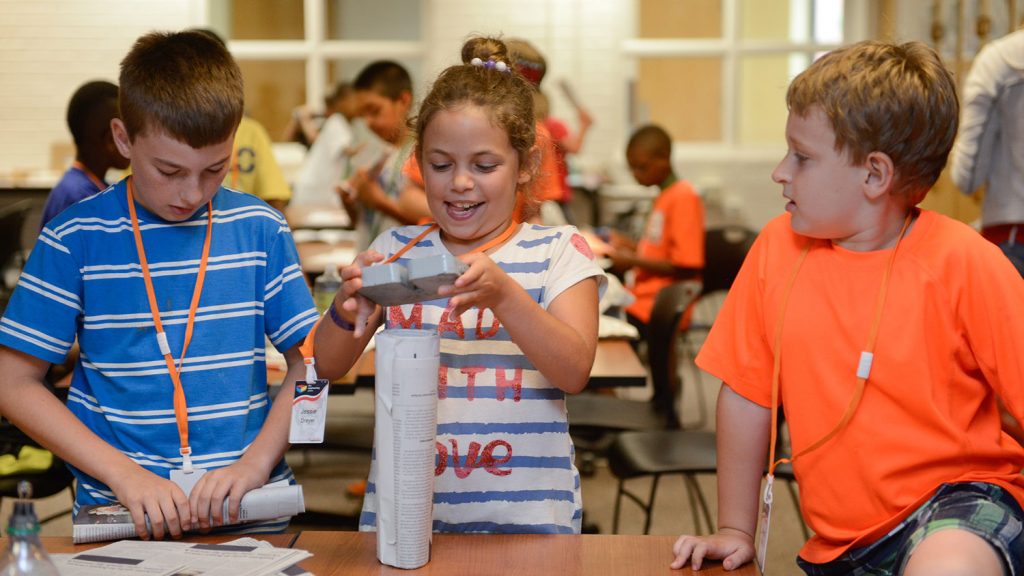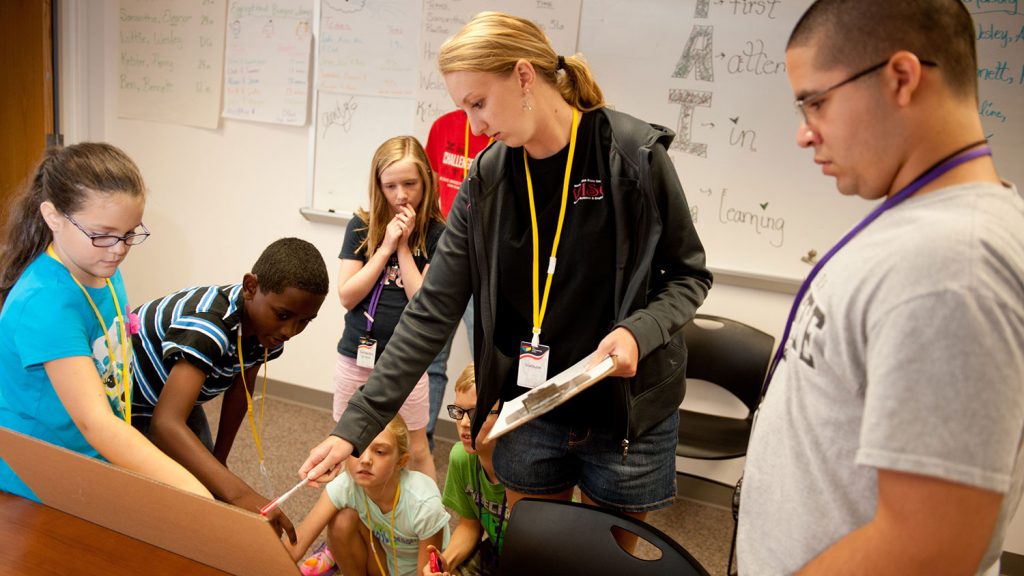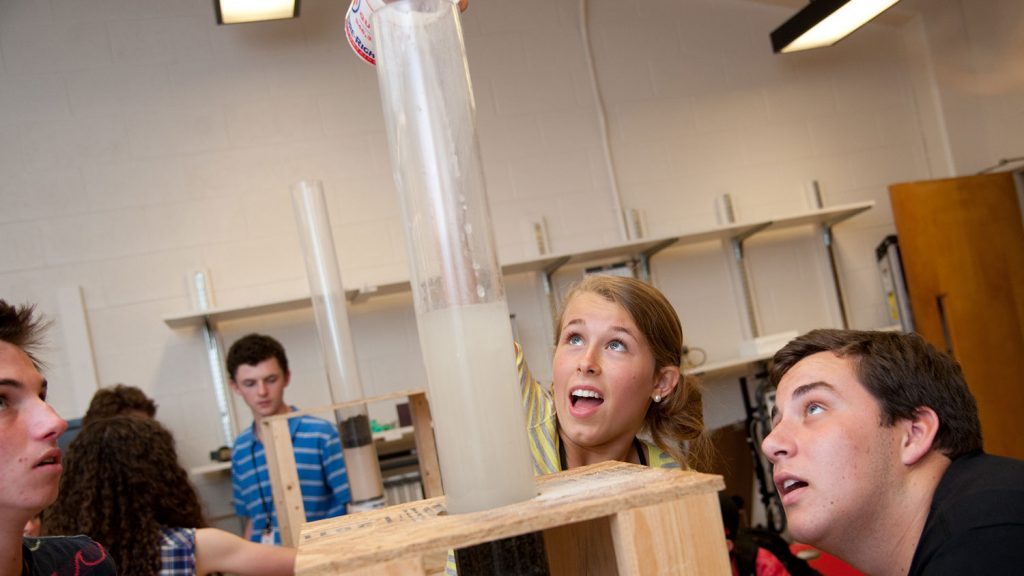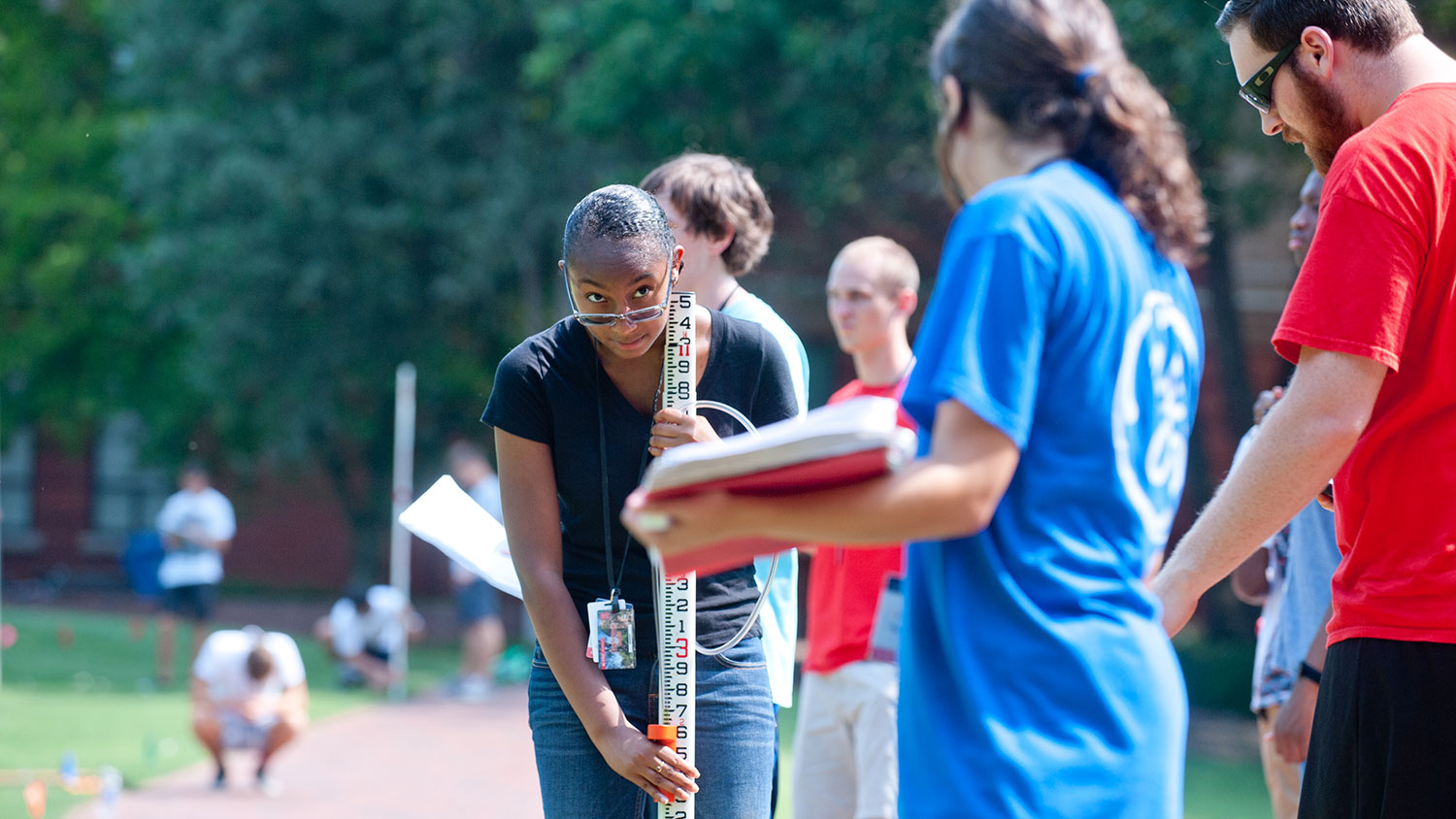Students
What is engineering? What kind of work do engineers do? How does engineering impact my life? Should I be an engineer?
You may have many questions about engineering, and this site provides tools and information for you to explore how engineering is, and can be, part of your life!

Elementary School

Have you ever solved a problem? Maybe you have solved a homework problem in math or science. But what about a problem like how to do your chores faster or how to reach something on a tall shelf? Engineers solve society’s problems, and their work is all around you!
Here are some examples of what an engineer might do to make the world you live in a better place:
GETTING AROUND – Take a look at your tennis shoes — what do you use them for? Can you list all of the materials in your shoe? Can you find different kinds of tennis shoes and compare their features and tread? How are they different? Engineers develop lighter and stronger materials that allow your feet to breath and design shoes to perform the best for different types of activities like running, basketball and skateboarding.
STAYING WELL – Have you ever had an x-ray at the doctor’s office or dentist? You probably got to see your tissue and bones! Lots of engineers work to develop the machines that take these images. Engineers also design things like electronic thermometers, hearing aids and tiny robots so small that they can be used for surgery!
YUMMY ON THE TUMMY – We all love a great candy bar or piece of chocolate, but where and how are they made? Engineers design equipment to make your favorite candies and foods, as well as design processes that don’t waste ingredients and produce the freshest, best-tasting treats! They might also be involved in developing the packaging that your candy is wrapped in — from the materials to the shape and design!
CHEMICALS AT WORK – Have you ever wondered how that sticker on your apple stays on during shipping and at the store but comes off so easily when you are ready to eat it? Engineers develop new chemicals and materials that make our lives easier — like the stuff in diapers which makes them absorb liquids, glue that can be used on your skin instead of stitches and solar cells that can collect the sun’s energy.
GAMES, GAMES AND MORE GAMES – Have you ever played games on a Nintendo Wii™ or a Playstation®? Engineers and Computer Scientists not only designed the box, the guts and the handsets, but they also designed all of the software tools for the graphics, menus, sounds and actions! Next time you play, thank an engineer!
Resources
Middle School

Now is a great time in your life to begin exploring careers and matching specific jobs and professions with your own interests and motivations.
- Are you an organizer?
- Do you love to be outside?
- Do you like to take things apart?
- Are you always trying to do things better or quicker?
- Do you like to help people?
No matter your interests, our information and tools will assist you in learning more about engineering, discovering if engineering is a potential career for you and finding out how to prepare for a future in engineering!
Resources
High School

Are you investigating engineering as a career for the first time? Or looking to make a decision about specific disciplines and university/college programs? Wonder what being an engineering student is like or how to prepare yourself for college? Use our tools to make an informed choice, no matter what your goal!
Which Engineering Do I Choose?
Once you have identified engineering as a potential course of study, you may be wondering how to choose a specific discipline. With 18 disciplines at NC State, and many other specialized disciplines represented at other institutions throughout the country, narrowing down to just one can be a difficult choice!
Almost half of students who consider studying engineering in college don’t know in which kind of engineering they will major. Understanding engineering requires a little digging. If you look at a university web site, you will usually see a list of different kinds of engineering degrees that you can get. How do you decipher the differences between them? How do you know which of them will let you have the kind of career that you can be passionate about and enjoy? Read on, here is our prescription:
- Explore Your Motivations and Interests – What interests you? What are your passions? What makes you get out of bed in the morning? Understanding your preferences, interests and motivations is the first piece to determining which discipline is best for you. Take some time and write these things down — maybe you love to learn about how foods are processed and packaged, or the environment really motivates you. Or perhaps you constantly find yourself trying to make any task or process more efficient. Whatever your interests, write them down and understand them.
- Explore Jobs First – When looking at which degree to study, many people look first at the classes needed to obtain that degree. But in fact, classes are only a means to an end. It is possible to love a series of classes and not want to do the job they prepare you for. It is also possible to dislike classes and love the job they prepare you for, although it is of course preferable to like both! What that means is you should look at job opportunities first, match them to your interests and then determine which course of study will prepare you for that job. Below are some reliable sources for exploring jobs:
- Engineering Catalog: Use our Engineering Catalog to explore different disciplines and see which might be best suited to you!
- American Society for Engineering Education
- Junior Engineering Technical Society
- Chat it Up – The Engineering Catalog and the aforementioned websites are by no means a complete picture, but they will help you to begin the exploration process. Do be careful because making a decision about your future is not the work of half an hour and a single web site. Talk to people who are engineers about their jobs. Talk to teachers and professors about their work. Ask them why they decided to become engineers.Beware of advice that says, “Well you’re good at math and science. Be an engineer.” Engineers certainly use math and science, but we also use art, social studies, language arts and more. Remember, it is what you want to do and what interests you that makes the difference. Ideally, your career should be something you do because you love it. But know that many engineers begin in one discipline and work in many others over the course of their career. With engineering, we don’t think you can make a bad choice!
Engineering Aptitudes and Skills
Engineers work in many different areas and industries to solve problems, create new products and processes and develop the technologies of tomorrow. But across the board, engineers will develop or enhance many of the following aptitudes and skills in their education and experience:
Aptitudes
- Structural visualization (spatial aptitude) – Can you rotate an object in your head? Or imagine what it looks like from another side? In some disciplines of engineering, particularly related to design, this skill is very useful.
- Analytical reasoning
- Mathematical ability
- Memory for design
- Observation
Skills
- Representing a design problem
- Making assumptions
- Generating possible ideas for designs
- Planning and scheduling activities
- Making efficient use of resources
- Organizing the components and activities of a team design project
Top Ten Reasons to Be an Engineer
- Engineers work to solve global problems such as world hunger, clean water, protecting the environment and improving the quality of everyday life.
- Engineering allows you to use your creativity every day.
- Engineering gives you the chance to collaborate with other professionals such as lawyers, doctors, government officials, scientists, statisticians and more.
- Engineering is a global endeavor, frequently affording the opportunity for travel.
- Engineers have the opportunity for rapid advancement in their companies.
- Engineers frequently have a high level of responsibility and autonomy in their positions.
- Engineering salaries remain high.
- Engineering degrees provide excellent preparation for other professional degrees such as medicine, law or business.
- While working as a scientist frequently requires advanced degrees, engineers are very employable with a bachelor’s degree.
- Engineering has more impact on the world than any other profession.

